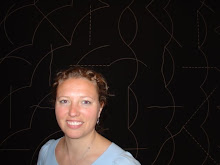Directly following my reading of Lucy Grealy’s Autobiography of a Face I read Ann Patchett’s non-fiction book Truth and Beauty: A Friendship where she writes about how she and Lucy were friends, writers, and as close as sisters. Directly following that, I read Suellen Grealy’s article Hijacked by Grief where she talks about her sister, Lucy, and Ann’s capitalizing on their friendship.
Two things. One, I believe Ann Patchett’s story. Two, I believe that Suellen Grealy hit it on the nose by saying that Ann is nothing like the writer Lucy was. If I had read Suellen Grealy’s article before I read Patchett’s book, I might have felt too guilty to read the book. However, I had an insatiable curiosity about Lucy Grealy after reading her book and was all too happy to read more about her.
Patchett describes the women’s lives on the road to ‘writer-dom’ with steadiness. It’s the same story I’ve heard from many authors. Somehow, although Patchett is being so true to her story, describing herself as the dull ant doing her work, and Grealy as the vibrant grasshopper bringing life to every situation, I found her patronizing, and even at a couple points, defensive. I know people who can be entirely loving and still rub me the wrong way. So, although I got to read what it meant for Grealy to survive the cancer and the subsequent reconstructive surgeries through the eyes of a friend, I had to acknowledge that their relationship was not my ideal. (However, I have spent more time valuing the friendships I hold dear since reading this.) When Grealy revealed her life’s struggles I felt her to be very much ‘like’ me, when Patchett took over Lucy became entirely ‘other.’
I understand that Ann and Lucy loved one another. I believe they used one another as much as they could stand, which for both of them would not be too much. And I am genuinely convinced that their need for one another was entirely deep and inscrutable. However, I feel very much for Suellen Grealy who has come away from the untimely death of her sister to discover this growth, this off-shoot on Lucy’s life. Tragedy is the world’s, and Lucy was in it. And, although they may at times be complimentary, as often Truth and Beauty are at odds.
